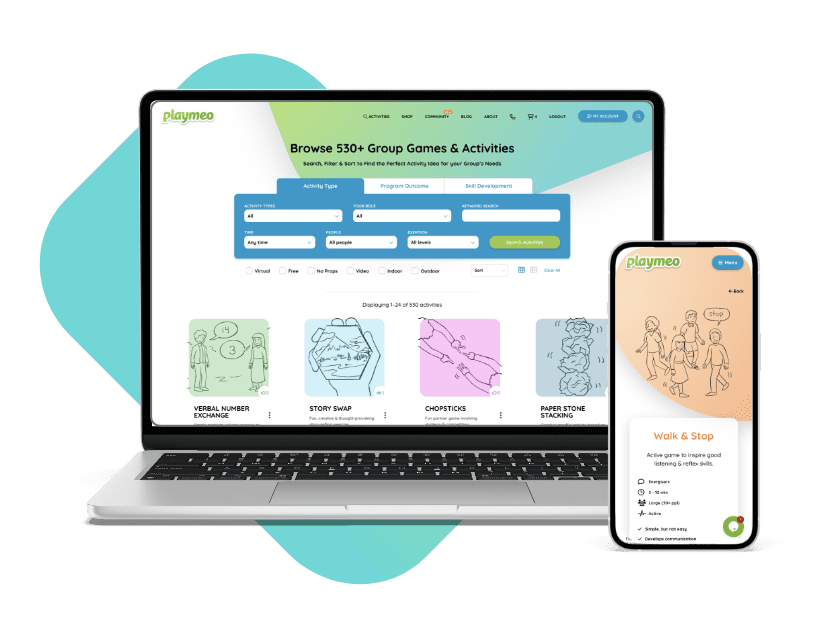People need time to talk and share opinions in a controlled, structured environment.
That’s why a debrief with some groups (especially young people) can seem like herding cats – they will scatter all over the place if they’re not given a better structure.
This article will share the top seven strategies for how to conduct a debrief.
The following tips and advice are useful when you want your group to reflect on what they may have learned from their experience. There are no hard and fast rules, but these points will help you squeeze more out of your discussions.
Get Your Debriefs Sorted
A 7-Point Checklist to Conduct an Effective Debrief
1. Stop talking at people & start talking with people
Invite people into your conversation rather than just telling them what they need to know.
For example, compare “This is how you hold a surfboard” with “Jesse, what do you think is the best way to hold a surfboard?”
2. Sequence your discussion to prepare your group for talking
In the same way you use warm-ups and stretches before more strenuous exercise, you also need to warm-up people to get them talking.
Here’s a quick three-step model for how to conduct a debrief that works a treat:
-
- Ask ‘What’ questions – these questions refer to what happened during an exercise and are used to get the discussion off to a good start. For example, “What happened after you feel off the element?”
- Ask ‘So What’ questions – these questions relate the activity back to the goals of your program, and add meaning to it. For example, “Why do you think people stopped talking all of a sudden?”
- Ask ‘Now What’ questions – these questions drive home the lesson’s objective by discussing future behaviours and goals. For example, “How can you prevent your discussion from getting out of control next time?”
3. Ask lots of open-ended questions
The question “How are you feeling?” is more powerful than “Are you feeling cold?”
Open-ended questions are more likely to provide greater insight and opportunities for people to participate in a two-way conversation.
4. Use a variety of formats to keep your group engaged
Debriefing is more than just asking your group to circle up and asking a few questions.
The first step in learning is engaging the brain, so choose a variety of discussion techniques that are fun, interactive and meaningful to attract people’s attention.
Take a look at some of the fun, interactive and rewarding debrief ideas featured on playmeo’s activity database.
5. Make it easy to see & hear each other
Consider using circles to conduct your conversation and moving in closer to hear each other. Also, be aware of the impact the wind and the sun may have on your group’s ability to see and hear you. For example, it is recommended that you face the sun, rather than your group, otherwise, it will give people just another excuse to look elsewhere. And keep their backs to the distraction of other people, interesting panoramas and other events that will easily distract them from your conversation.
6. Use a neutral response to comments
People develop many coping skills to make sure they don’t look stupid in front of their peers. For example, rather than joining into a discussion right away, some folks prefer to wait for others to make the initial responses.
So, if you telegraph your opinion of their responses with “Great,” “Good answer,” or “Exactly right,” you may encourage some people to delay their response, or not respond at all, because they’ll believe that the right answer has already been given.
Clearly, this is not a hard and fast rule, but if you’re looking to attract lots of input from your group, consider the impact your comments may have.
7. Use what works for you & change what doesn’t
Adapt everything you read here to match the age, needs and characteristics of your particular group, the weather, your environment, the time you have and (of course) your personality.
Are You Ready to Elevate Your Debriefing Skills?
All of playmeo’s content is informed by the power of experiential-based learning, which, by definition, leverages the power of reflection or debriefing skills.
As soon as you join playmeo, you will expand your activity repertoire, build team skills, and start an exciting journey to become a better facilitator.
To get started, click the button below.
Try for Free






